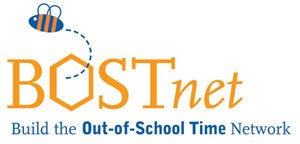Effective group management skills, especially those related to behavior, are consistently seen as critical in promoting regular participation, engagement and learning in out-of-school time activities. Unfortunately, most programs do not have integrated behavior management systems in place, and even when they do, these systems are often ineffective. This is due to a variety of challenges programs face every day: high staff turnover rates and insufficient training; children who are both physically and emotionally tired after their school day; and constantly changing conditions, including the number and mix of kids or limitations of space. OST workers need proper training and referral information to work with families when a child needs to be assessed for mental health supports. Developing staff competencies in addressing these problems has a lasting effect on children and has real benefits on the quality and sustainability of out-of-school time providers. Moreover, research-based models for inclusion and promoting positive behavior have a community value that must be recognized by policymakers and funders who decide on whether or not to invest in afterschool programs.
There is a very real social cost when afterschool programs struggle with behavior management. Often, youth are expelled, voluntarily withdrawn or referred to another program if available. In our experience, many programs view behavior management as intervention for youth who are “at-risk” rather than a program-wide approach. “Get tough” strategies, including punishment, exclusion and containment, are ineffective and reduce the ability of a child to benefit from positive social interaction with staff and other children. These outcomes are not only destructive they are unnecessary. Research suggests that children and youth, including those who need mental health services, will show measurable improvement in areas of behavioral adjustment when they are in supportive environments that promote positive social behavior.
Looking forward, it is clear that there are very real challenges. We need strong policies that support consistent funding to provide opportunities for staff development in behavioral training, more appropriate staff-to-child ratios and better systems for addressing children’s mental health issues. Sustained technical assistance is critical to foster long-term benefits for all children in out-of-school time programs. We need to support efforts to define and nurture a statewide professional workforce development system that identifies core competencies every youth worker needs to succeed and establishes well-defined pathways for career advancement. We need to continue to promote accreditation as a viable and sustainable path for organizations seeking to enhance the quality of their programs. Developing strong networks enables individual programs to leverage resources through collective power. We need to create capacity within the field to promote mentoring and support structures between programs so that the knowledge being generated in the field is shared. When we truly utilize the power of our community and networks to address these common issues, we will be better able to create lasting change.
Lastly, we need to think of all out-of-school time quality initiatives as an integrated system of program and staff development. We cannot separate a program’s ability to engage families from its skill in including children with disabilities, its use of space, or its efforts to promote positive behavior. All of these competencies are linked to broader systemic issues that need to be continually reinforced so that quality programming can be sustained for all children.
16 years ago
